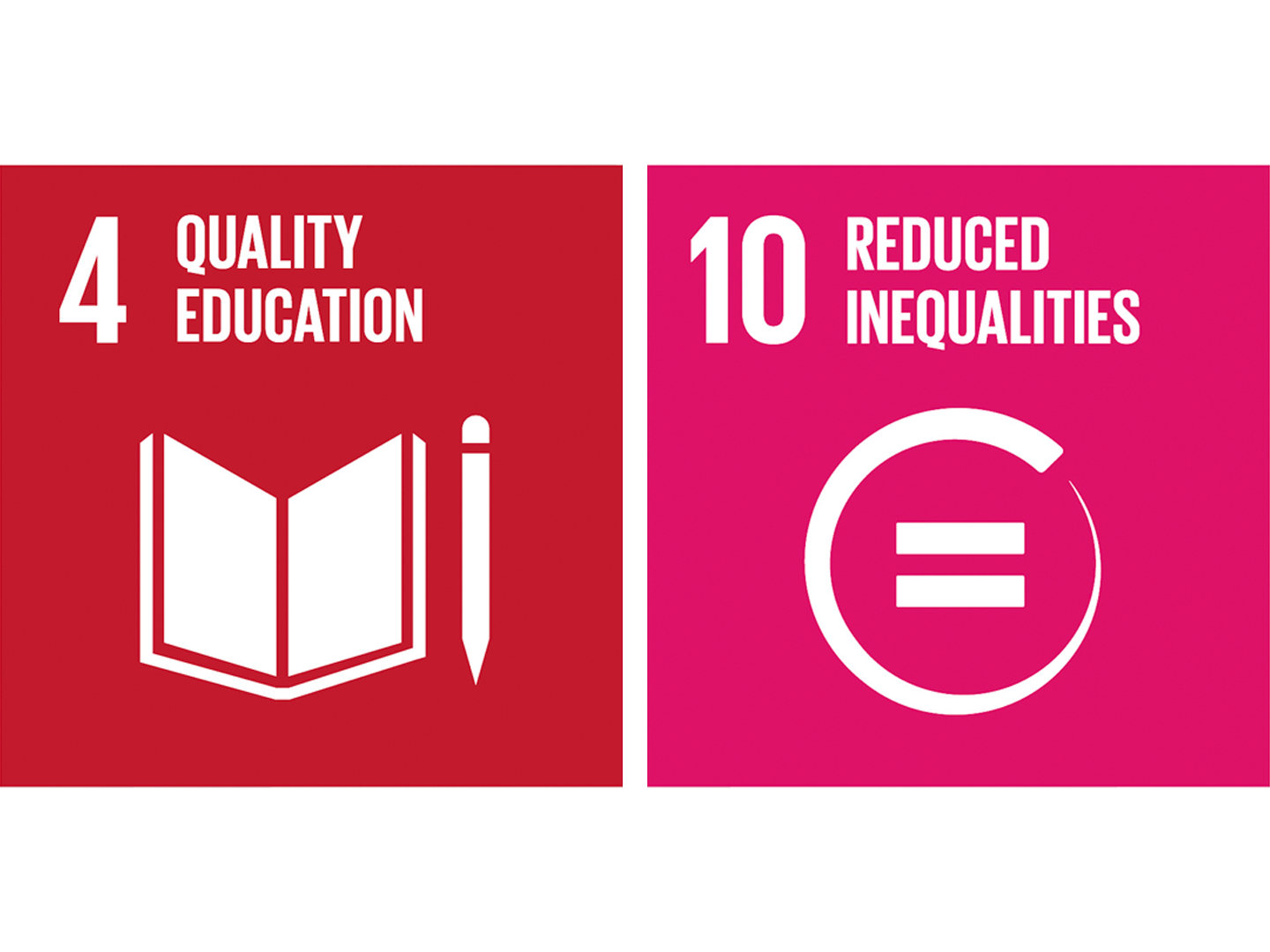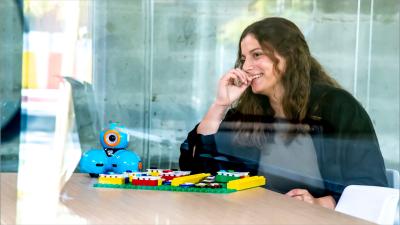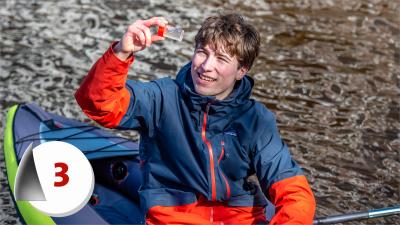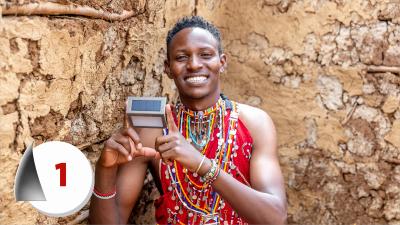Filipa de Sousa Rocha
Accessible programming for visually impaired children
Second place, Young Inventors Prize, 2023
Approximately 90 million children and adolescents worldwide live with some form of sight loss. For many children, access to digital education is limited, as programming is often taught via drag-and-drop-type computer games or provides audio-only instruction, which is difficult to follow for children who are visually impaired.
As part of her master’s programme, De Sousa Rocha began work on a project that teaches digital literacy using tangible blocks decorated with 3D icons. Each icon represents a directional movement or speaking function to send commands to a robot. Using these blocks, children with a visual impairment can control the robot in the same way that a child playing a drag-and-drop computer game would. De Sousa Rocha calls this invention Block-based Accessible Tangible Programming Systems, or BATS.
Despite lacking funding, De Sousa Rocha built relationships with schools, associations and families to bring her concept to life. She firmly believes that all children should have the opportunity to learn about technology: “Even if children don’t want to follow a technological career, or if they want to go into finance, business, management or something else, they are going to be using technology in the future, and it’s important to comprehend it.”
Driven to make a difference
De Sousa Rocha’s academic credentials include a bachelor’s degree in computer engineering and a master's in computer and information systems from Instituto Superior Técnico in Lisbon. Currently, she works as a teaching assistant and is pursuing her PhD in informatics at the University of Lisbon. She has published four papers on accessible programming, including her findings on a programming approach focused on accessibility called "LEGOWorld".
Her work on BATS reflects a deep commitment to an equitable world: ‘‘It's really important for people working on new inventions to have a diverse range of backgrounds and perspectives. It helps to ensure that the technology we're creating is inclusive and serves the needs of everyone, not just a select few.” When she is not studying or refining her educational tools, De Sousa Rocha volunteers at Cova do Mar and Just A Change, two non-governmental organisations in Portugal that focus on human rights and housing poverty.
Towards the UN Sustainable Development Goals (UN SDG)

The invention aligns with UN SDG 4, which focuses on ensuring inclusive and equitable quality education and promoting lifelong learning opportunities for all. Computer literacy enables better access to information, resources and opportunities, which can lead to greater economic and social mobility. De Sousa Rocha’s work also contributes to UN SDG 10, which aims to reduce inequality within and among countries.
Media gallery
Press materials
Access materials for journalists
Press release: Inclusive digital learning for visually impaired children: Portuguese computer engineer named as a finalist for the Young Inventors Prize 2023Press photos/videos (for MXF format videos, please contact press@epo.org)
Contact
European Inventor Award and Young Inventors Prize queries:
european-inventor@epo.org Subscribe to the European Inventor Award newsletterMedia-related queries:
Contact our Press team#InventorAward #YoungInventors





